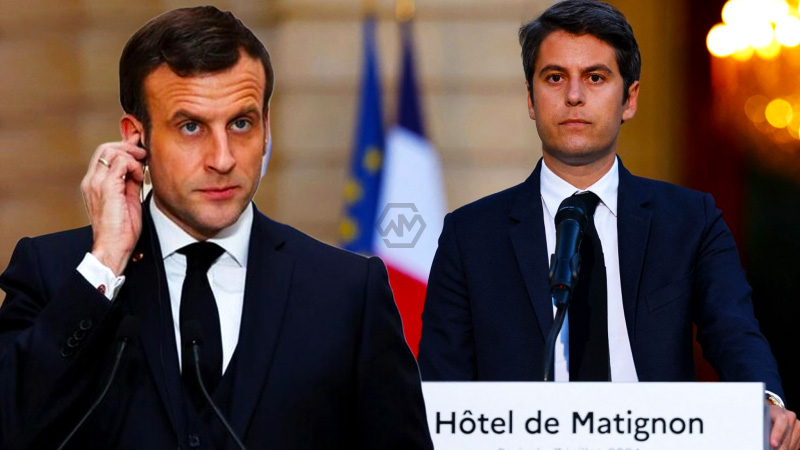- Emmanuel Macron rejects prime minister‘s resignation, prioritizing stability.
- Left-wing coalition emerges strongest in French parliamentary elections.
- Uncertainty looms as France faces potential hung parliament scenario.
Emmanuel Macron’s decision to refuse Gabriel Attal’s resignation underscores his commitment to maintaining stability in France amid a challenging political landscape. Following parliamentary elections where Macron’s Renaissance party lost ground to the left-wing New Popular Front coalition, the country now faces the prospect of a hung parliament.
The emergence of the New Popular Front coalition as the largest bloc reflects growing voter discontent and a desire for change. This coalition, comprising diverse left-leaning parties, including France Unbowed and the Socialist Party, has reshaped the political landscape and poses a challenge to Macron‘s centrist agenda.
French Political Landscape Shifts: Macron’s Next Move Crucial
Emmanuel Macron’s decision to retain Gabriel Attal as prime minister despite the government’s setback in the parliamentary elections highlights the complex challenges facing French politics. The left-wing New Popular Front coalition’s emergence as a formidable force has reshuffled expectations, turning what was anticipated to be a clear victory for Macron’s Renaissance party into a hung parliament scenario. This outcome reflects broader dissatisfaction among voters and sets the stage for intense negotiations to form a new government.
The rise of the New Popular Front, formed hastily in response to Macron’s snap election call, underscores a united front against his centrist policies. Led by France Unbowed and supported by other left-leaning parties, the coalition’s success marks a significant shift in French political dynamics. Conversely, Marine Le Pen’s National Rally remains influential, placing third in the election, and is poised to capitalize on discontent with Macron’s leadership.
As France navigates this period of political flux, Macron faces crucial decisions on coalition-building and policy adjustments. The stability of his administration hinges on his ability to forge alliances across ideological lines while addressing the electorate’s demands for change. With protests and tensions already visible in Paris, Macron’s leadership will be tested in steering the country through this uncertain phase.
Emmanuel Macron’s decision to retain Gabriel Attal as prime minister amidst political turbulence signals his intent to stabilize France’s governance amid shifting alliances and voter sentiment. As the country grapples with a hung parliament and rising political discontent, Macron’s next moves will be critical in shaping the future direction of French politics and governance.



